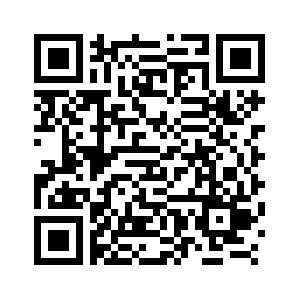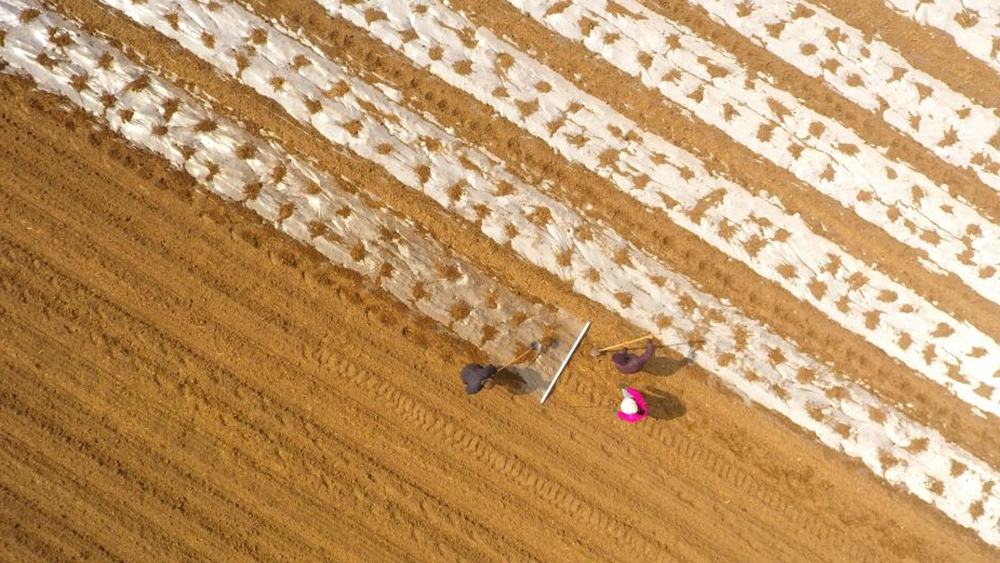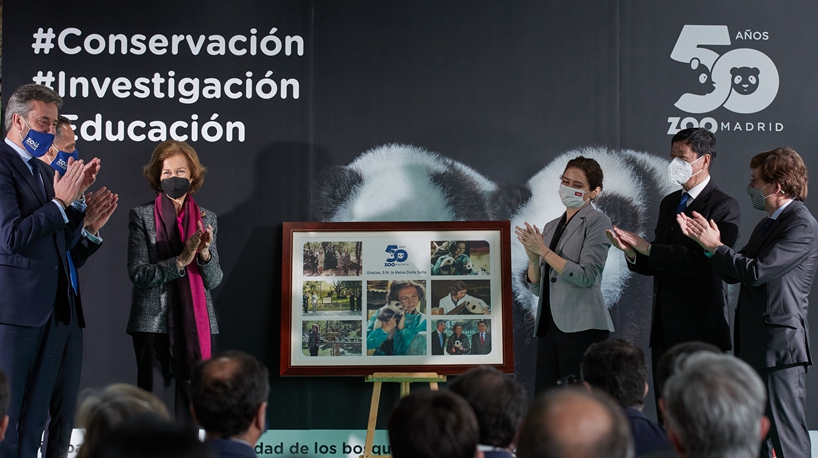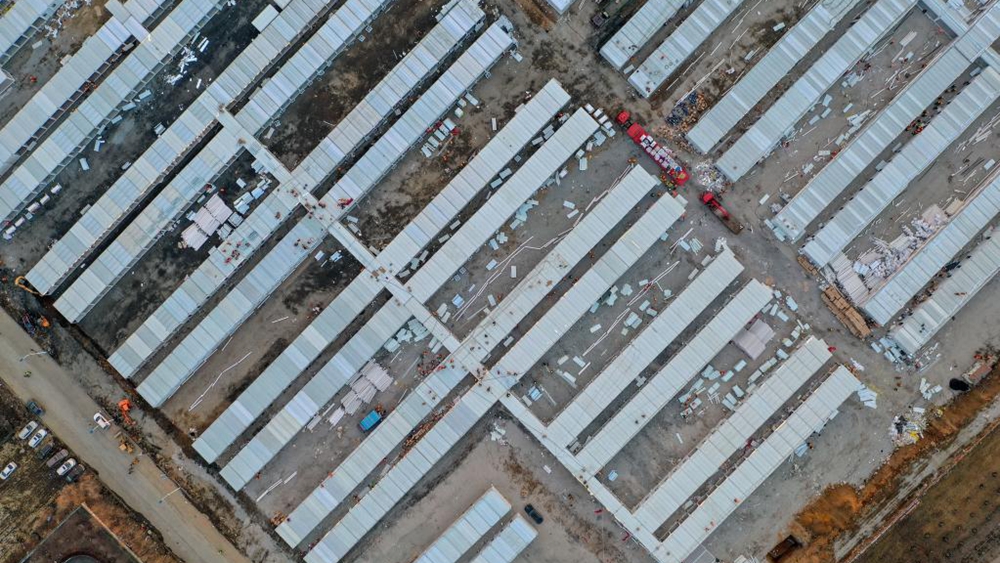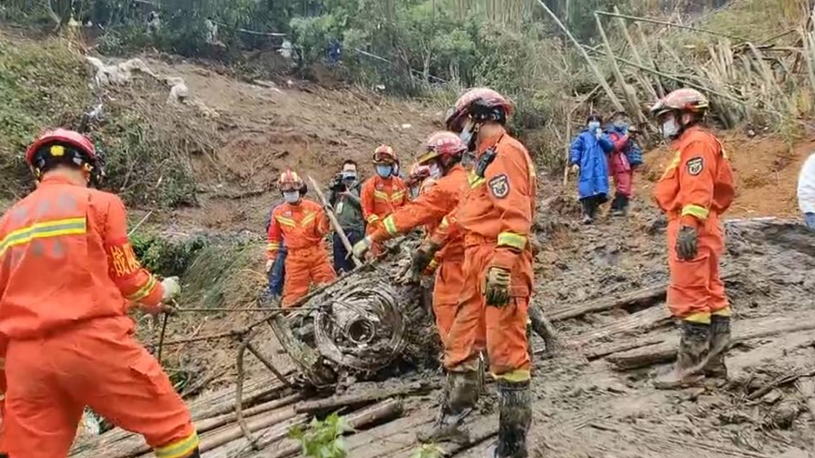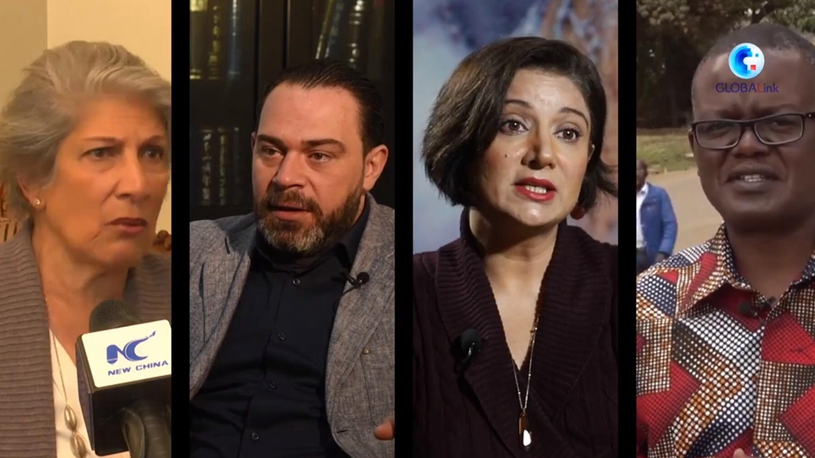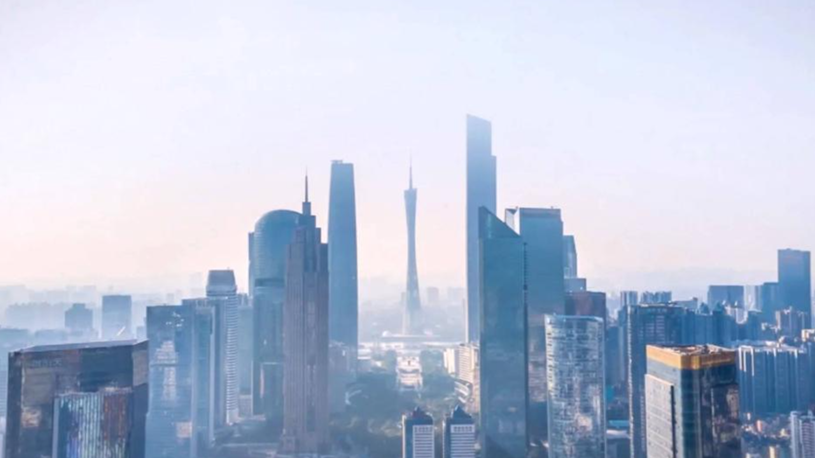
People wearing face masks attend the Game Developers Conference at the Moscone Center in San Francisco, California, the United States, March 24, 2022. (Photo by Liu Yilin/Xinhua)
With another pandemic surge possibly on the way, vaccination for the coronavirus in the United States has all but ground to a halt, with initial doses and boosters plummeting to the lowest levels ever since.
NEW YORK, March 25 (Xinhua) -- There is wide concern in the United States that another wave of COVID-19 is lurking somewhere ahead over the looming dominance of the BA.2 subvariant, though figures and rates currently give some reason for optimism, according to reports by major news media.
The data analysis of The New York Times (NYT) showed that the 7-day average new COVID-19 deaths on March 24 in the United States went down to 830, a minus 36 percent change over a period of 14 days. New coronavirus cases were 30,387, recording a minus 15 percent change.
However, experts are watching for a potential new COVID-19 surge in the United States and wondering how long it will take to detect, as some recent developments don't bode well, The Associate Press reported on Friday, citing that fewer people are getting the gold-standard tests that the government relies on for case counts and health officials are increasingly focusing on hospital admissions, which rise only after a surge has arrived.
In addition, a wastewater surveillance program remains a patchwork that cannot yet be counted on for the data needed to understand coming surges, and White House officials say the government is running out of funds for vaccines, treatments and testing, according to the report.
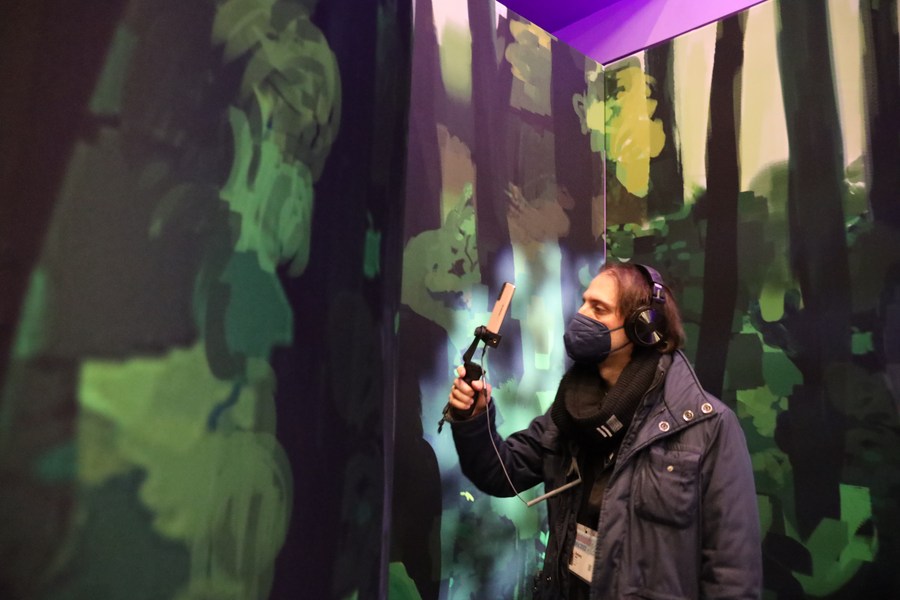
A man wearing face mask experiences how plants grow in a natural environment with an AR device during the South by Southwest (SXSW) Conference and Festivals in Austin, Texas, the United States, March 12, 2022. (Xinhua/Xu Jianmei)
VACCINATION HURDLE
With another pandemic surge possibly on the way, vaccination for the coronavirus in the United States has all but ground to a halt, with initial doses and boosters plummeting to the lowest levels since the program began in late December 2020, The Washington Post reported on Friday.
On Wednesday, the seven-day average of vaccinations fell to fewer than 182,000 per day, lower than at any time since the first days of the program. "The daily total has been in free fall for the past six weeks" and "the low rates have long caused concern among some experts," said the report.
Now, with authorities bracing for a possible increase in COVID-19 cases caused by the BA.2 subvariant, 65.4 percent of Americans are fully vaccinated and just 44 percent have received a booster shot. That is substantially less than the totals in many Western European nations, it added.
Meanwhile, "vaccine hesitancy likely already accounts for tens of billions of dollars in preventable U.S. hospitalization costs and up to hundreds of thousands of preventable deaths, say public health experts," Reuters reported on Friday, noting that for individuals forgoing vaccination, the risks can include layoffs and ineligibility to collect unemployment, higher insurance premiums, growing out-of-pocket medical costs or loss of academic scholarships.
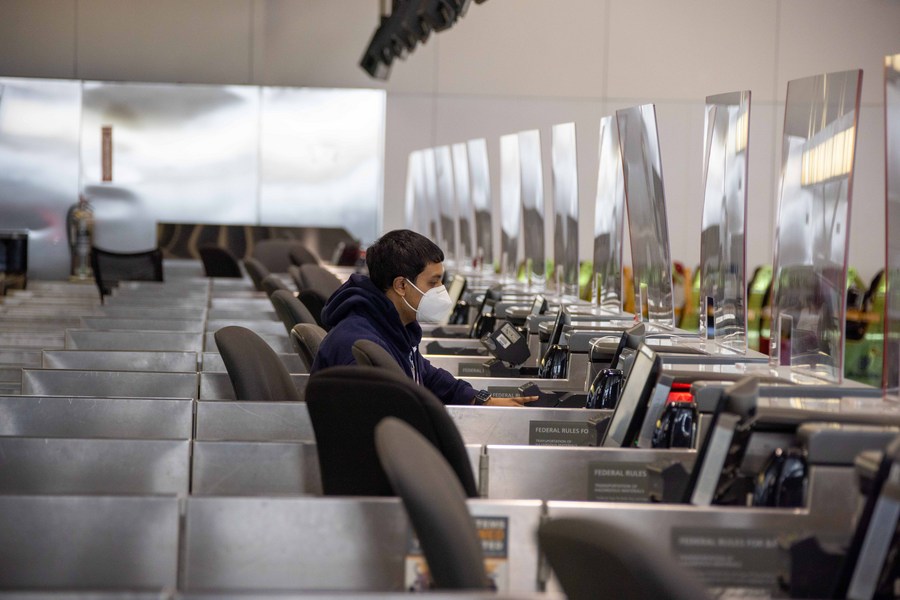
A staff member wearing face mask is on duty for check-in at John F. Kennedy International Airport in New York, the United States, Jan. 29, 2022. (Photo by Winston Zhou/Xinhua)
RESTRICTIONS EASING
Amid wide concern that the vaccination campaign has been lagging and another surge of coronavirus is possible, the calls are still unabated for the federal government to loosen its COVID-19 restrictions, especially from the sectors that involve movements of large groups of people.
On Wednesday, airline executives, including chief executives of Delta Air Lines, American Airlines and United Airlines, urged U.S. President Joe Biden in a letter to end the federal mask mandate and other coronavirus travel requirements, which they said "are no longer aligned with the realities of the current epidemiological environment." The mask rule was recently extended to April 18.
The letter said that "the high level of immunity in the U.S., availability of high-quality masks for those who wish to use them, hospital-grade cabin air, widespread vaccine availability and newly available therapeutics provide a strong foundation for the Administration to lift the mask mandate and predeparture testing requirement. We urge you to do so now."
The Centers for Disease Control and Prevention said earlier this month that it would work alongside agencies including the Transportation Security Administration to determine warranted changes to the rule, noting that "this revised framework will be based on the COVID-19 community levels, risk of new variants, national data, and the latest science." ■
